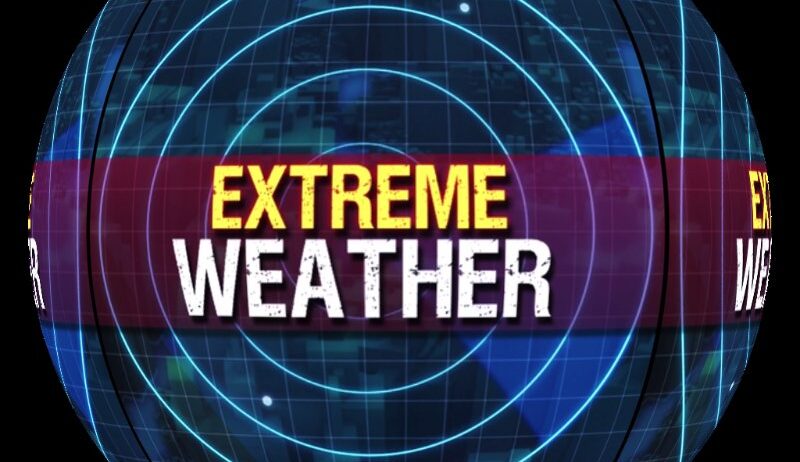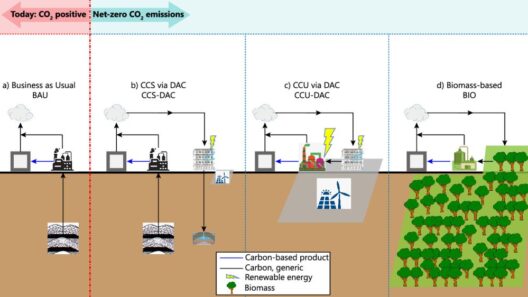Extreme weather events, characterized by their intensity and unpredictability, have become increasingly frequent and severe in recent years. This alarming trend serves as a vital indicator—a clarion call if you will—highlighting the escalating peril that climate change poses to the planet. These phenomena, ranging from ferocious hurricanes and droughts to unprecedented flooding, are not mere anomalies; they are symptomatic of a larger, systemic malaise affecting Earth’s climate. What does it mean for our planet to be sending out an SOS, and how do extreme weather events fit into this narrative?
First, it is essential to define what constitutes extreme weather. The National Oceanic and Atmospheric Administration (NOAA) categorizes such events as those that deviate significantly from the norms of local weather patterns. Broadly speaking, these include hurricanes, heatwaves, heavy rainfall, floods, droughts, and wildfires. Each of these phenomena showcases the multifaceted interactions within Earth’s climate systems, which have been disrupted largely due to human activities such as deforestation and fossil fuel combustion.
The correlation between climate change and extreme weather is unequivocal and is substantiated by a plethora of scientific studies. For instance, warmer air holds more moisture, increasing the likelihood of extreme precipitation events. In fact, the Intergovernmental Panel on Climate Change (IPCC) posits that as global temperatures rise, the intensity and frequency of heavy rainfall and flooding are expected to escalate. Areas once considered to be resilient to such occurrences are now finding themselves at the mercy of catastrophic deluges, leading to substantial socio-economic repercussions.
Heatwaves, too, stand as vivid examples of climate change’s tangible impacts. With rising global temperatures, prolonged and more frequent heatwaves threaten not only human health but also agricultural output. Crops suffer under the relentless sun, leading to diminished yields and, ultimately, food insecurity. As food systems become destabilized, communities that are already vulnerable face exacerbated challenges. It is imperative to recognize that these extreme events are interconnected facets of a larger crisis that demands immediate global attention.
Hurricanes have similarly become more powerful as ocean temperatures rise. Warmer waters act as fuel for these storms, leading to amplified wind speeds and increased rainfall. The devastation wrought by hurricanes is multifold, impacting infrastructure, displacing populations, and often overwhelming emergency services. Notable examples include Hurricane Katrina and Hurricane Maria, both of which exposed the fragility of communities and brought to light the urgent need for resilient infrastructure and disaster preparedness protocols.
Moving beyond discussions of individual weather events, it is crucial to examine the broader ecological ramifications. Extreme weather can damage ecosystems and biodiversity, stripping away habitat and endangering various species. For instance, intense wildfires, fueled by prolonged drought conditions, can obliterate forested areas, affecting everything from soil quality to water cycles. The degradation of these ecosystems further compounds climate issues, as natural carbon sinks are lost, leading to accelerated climate change.
The psychological toll of extreme weather events is another critical dimension of this discussion. Communities grappling with the aftermath of natural disasters often face mental health crises, as trauma and loss become everyday realities. The emotional impact on individuals and families can persist long after the physical repairs are made. This aspect highlights a chilling truth: the ramifications of climate change extend well beyond physical damage, infiltrating mental, emotional, and social realms.
In response to the growing incidence of extreme weather activity, governments and organizations worldwide are being prompted to re-evaluate their policies and preparedness plans. The time for reactive measures is over; proactive strategies are now essential. By adopting forward-thinking policies that prioritize sustainability, clean energy, and climate resilience, we can begin to mitigate these extreme events. Engaging communities in grassroots efforts to combat climate change will also play a pivotal role in effective adaptation and preparedness.
The concept of climate justice emerges as well, emphasizing the disparities between those most affected by climate change and those responsible for its acceleration. Marginalized communities often face the brunt of natural disasters, and addressing these inequities is essential in formulating comprehensive responses to extreme weather events. As governments implement climate policies, ensuring that they consider vulnerable populations will ensure collective resilience against future threats.
At the individual level, one can also play a pivotal role in addressing the impact of climate change. Engaging in sustainable practices such as reducing energy consumption, advocating for renewable energy, and participating in local environmental initiatives can contribute to a larger movement aimed at accountability and climate responsibility. The fundamental change starts with us, fostering a sense of environmental stewardship and an awareness of our interdependence with the planet.
As extreme weather patterns continue to unfold, it is increasingly evident that these events signify more than mere fluctuations in climate; they are urgent signals from our planet—an SOS to humanity. Failures to heed these warnings could result in irreversible consequences for ecosystems, public health, and global economies. Thus, it is necessary to act swiftly, decisively, and collectively to work towards a sustainable, equitable future.
In conclusion, extreme weather events serve as harbingers of the challenges posed by climate change, urging us to confront the realities of our changing world. The intricate web of connections between human activity and extreme weather underscores the necessity of immediate and robust action. The ramifications of inaction are dire, making it imperative that we transform this moment of crisis into a pivotal opportunity for change. Our planet’s SOS could lead us toward a future where ecological balance is restored, resilience is prioritized, and the health of both our communities and our environment is upheld.








